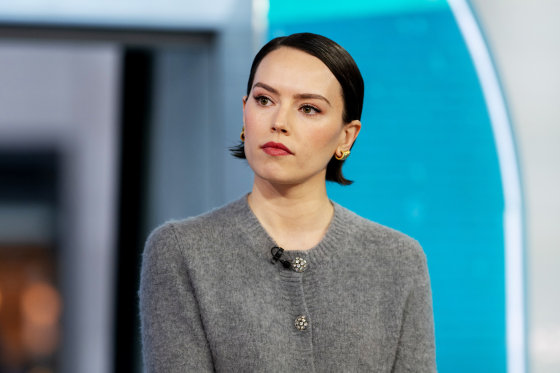"Star Wars" actor Daisy Ridley revealed in a new interview that she has been diagnosed with Graves' disease.
Ridley, 32, told Women's Health magazine in an interview published Tuesday that she was diagnosed in September after she experienced bouts of hot flashes and fatigue.
She said she started to feel ill after she filmed the thriller "Magpie," in which she plays Anette, a stay-at-home mother whose husband falls in love with a famous actress.
"I thought, 'Well, I’ve just played a really stressful role; presumably that’s why I feel poorly,'" she told the magazine.
An endocrinologist explained that her symptoms, which included weight loss, hand tremors, fatigue and a racing heart, were signs of the autoimmune disease.
Graves' disease affects the thyroid gland and causes hyperthyroidism, which is when the body produces too much thyroid hormone, according to the Mayo Clinic. Anyone can get the disease, but it affects mainly women and people over 30.
Other celebrities diagnosed with the disease include Wendy Williams and Missy Elliott.
Ridley, who has opened up in the past about her battle with endometriosis, said her Graves' disease diagnosis made her sad at first but also pushed her to develop a stricter diet and listen to her body. She has been vegan for years, and she stopped eating gluten after her diagnosis.
"I am not super strict about it, but generally cutting down on gluten makes me feel better," she said.
Treatment for the disease includes radioactive iodine therapy, in which the patient takes radioactive iodine by mouth to destroy the cells that make thyroid hormones, according to the Mayo Clinic. Medicines that block the thyroid from using iodine to make hormones and beta blockers, which block the effect of hormones on the body, are also other treatment options.
Reducing stress and developing a healthy lifestyle, including exercise and a well-balanced diet, can ease symptoms as a patient undergoes treatment, the clinic said.
Ridley said she has always been "health conscious, and now I’m trying to be more well-being conscious." She said that she's intentional about getting rest when her body is tired and that she has started doing cryotherapy and acupuncture and going to infrared saunas.
"I do a fair amount of the holistic stuff, but I also understand that it is a privilege to be able to do those things," she told the magazine.
